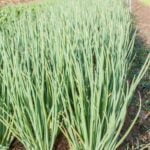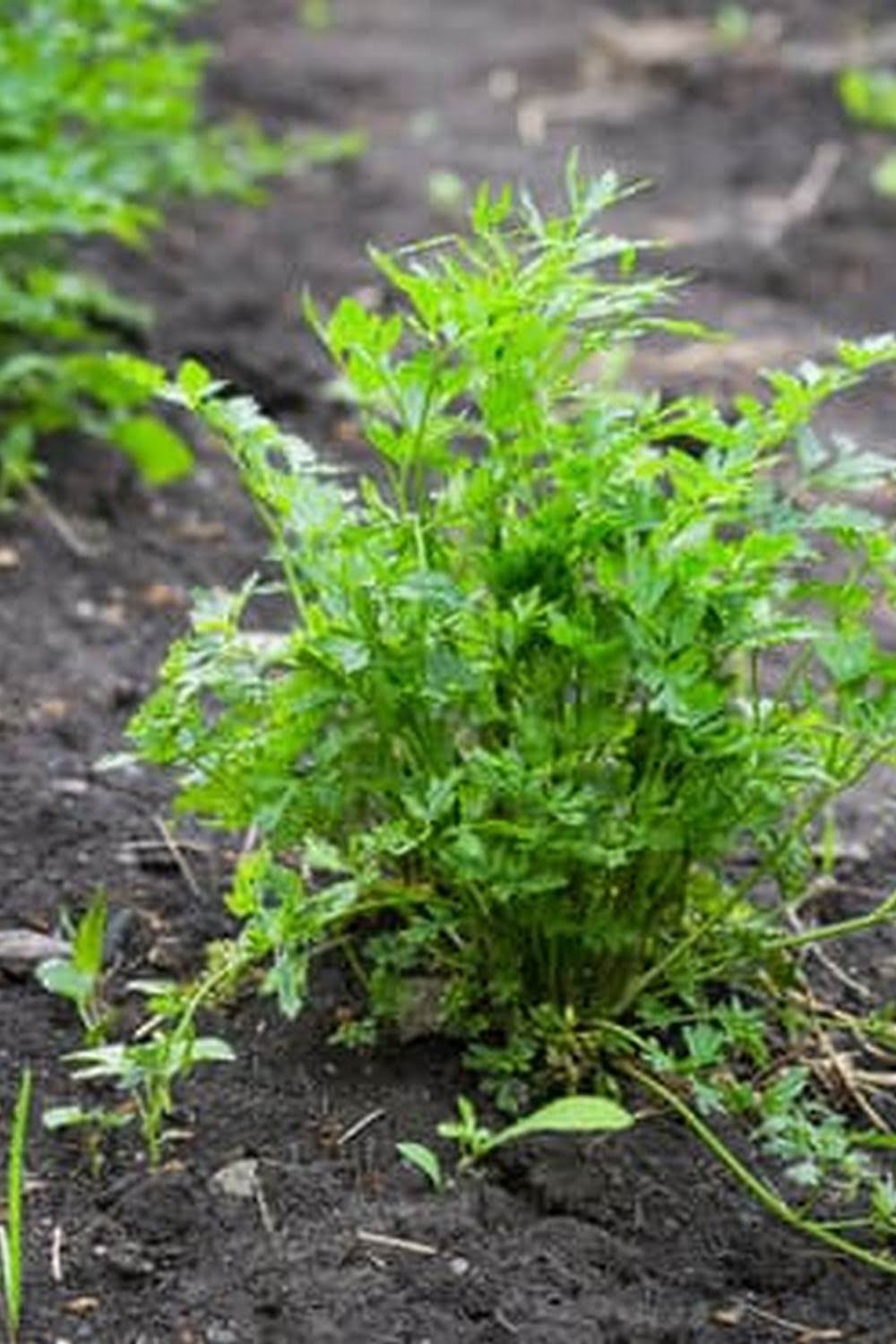Fire ants can be a persistent nuisance for gardeners, especially when they invade vegetable gardens. These tiny but aggressive insects can quickly multiply and wreak havoc on your precious crops. To combat this issue, it is essential to find the right fire ant killer for vegetable gardens that effectively eliminates these pests without harming your plants or soil.
Fire ants are known for their painful stings and destructive tunneling behavior, making them a major concern for gardeners. These ants not only pose a risk to human health but also cause damage to the roots of vegetables, leading to reduced yields and poor plant health. Identifying the signs of fire ant infestation in your vegetable garden is crucial in order to take swift action and prevent further damage.
Traditional remedies like boiling water or chemical insecticides may provide temporary relief from fire ant infestations in vegetable gardens. However, using a fire ant killer specifically designed for vegetable gardens can offer long-lasting control without posing harm to your edible plants. By understanding the characteristics and behavior of fire ants, you can select the right product that targets these pests effectively while ensuring the safety of your vegetables.
Understanding Fire Ants
Fire ants can be a major nuisance in vegetable gardens, causing damage to crops and potentially posing a threat to gardeners. Understanding the characteristics and behavior of these pests is crucial in effectively managing their populations. Fire ants are known for their aggressive nature and painful stings, making them unwelcome visitors in any garden. Here are some key points to help you better understand fire ants:
- Physical Characteristics: Fire ants are reddish-brown to dark brown in color and range in size from 1/16 to 1/4 inch long. They typically build large mounds or nests in the soil, which serve as their colonies.
- Behavior: Fire ants are highly organized insects with a caste system consisting of workers, males, and queens. They are known for their aggressive behavior when their colony is disturbed, quickly swarming and delivering painful stings to defend their nest.
- Foraging Habits: Fire ants are omnivorous creatures that feed on a variety of foods, including insects, seeds, fruits, and even dead animals. They often enter vegetable gardens in search of food sources.
Recognizing the signs of a fire ant infestation is essential for prompt action to control these pests before they cause significant damage to your vegetable crops. Look out for the following indicators:
- Mounded Nests: If you notice small mounds of soil in your garden beds or around plants, this could be a sign of fire ant activity.
- Aggressive Behavior: Fire ants will swarm and sting when their nest is disturbed, so be cautious if you see an unusually high number of ants congregating in one area.
- Damaged Plants: Fire ants may feed on seedlings or tender plant parts, causing wilting or distortion of leaves. This damage can impact the growth and yield of your vegetable crops.
By understanding the characteristics and behavior of fire ants and recognizing the signs of infestation early on, you can take proactive steps to control these pests effectively using a specialized fire ant killer for vegetable gardens. With the right approach, you can maintain a healthy garden free from fire ant problems and enjoy bountiful harvests throughout the growing season.
Signs of Fire Ant Infestation in Vegetable Gardens
Fire ants can wreak havoc on vegetable gardens, causing damage to crops and even posing risks to gardeners. Recognizing the signs of a fire ant infestation in your vegetable garden is crucial for effective eradication. One of the most obvious signs of fire ants in the garden is the presence of their characteristic mounds, which are typically built in open areas of soil like garden beds. These mounds can range in size and may be easily disturbed if touched.
Another telltale sign of fire ant infestation is the appearance of red, itchy welts on your skin after being stung by these aggressive insects. Fire ants are known for their painful stings, which can cause discomfort and allergic reactions in some individuals. Additionally, observing the behavior of ants in your garden can also indicate a fire ant infestation. Fire ants are aggressive defenders of their territory and will swarm out to protect their nest if disturbed.
If you notice any of these signs in your vegetable garden, it is important to take action promptly to control the fire ant population before they cause extensive damage to your crops. While traditional remedies like boiling water or toxic pesticides may offer temporary relief, using a specialized fire ant killer for vegetable gardens can provide long-lasting results without harming your plants or soil.
By selecting the right product and following proper application techniques, you can effectively eliminate fire ants from your vegetable garden and ensure a healthy harvest for seasons to come.
Risks and Damage Caused by Fire Ants to Vegetable Crops
Fire ants are not just annoying pests in vegetable gardens; they can also cause significant risks and damage to your precious crops. These aggressive ants can quickly build nests near the roots of plants, causing damage to the root system and inhibiting the plant’s ability to absorb nutrients and water effectively. This can lead to stunted growth, wilting, and even death of the affected plants if left unchecked.
Direct Damage
One of the most significant risks posed by fire ants is their ability to sting. When disturbed, fire ants will swarm out of their nests and attack anything in their path, including gardeners working in the vegetable patch. The painful stings can result in itching, swelling, and discomfort for those unfortunate enough to be on the receiving end. Moreover, fire ants can also sting fruits and vegetables, rendering them unpalatable or unsellable.
Indirect Damage
In addition to direct damage caused by their stings, fire ants can also indirectly harm vegetable crops through farming aphids for honeydew. Fire ants protect aphids from predators in exchange for a sweet substance called honeydew that aphids produce as waste. This relationship between fire ants and aphids can lead to reduced crop yields as aphids suck sap from plants, causing wilting and deformities. Controlling fire ant populations is essential to prevent indirect damage from these agricultural pests.
To mitigate the risks and potential damage caused by fire ants to vegetable crops in your garden, it is crucial to take proactive measures such as using a reliable fire ant killer specifically designed for vegetable gardens. By addressing fire ant infestations promptly with targeted treatments, you can protect your plants from harm and ensure a healthy harvest at the end of the season.
Traditional Remedies for Fire Ant Control in Vegetable Gardens
When dealing with fire ant infestations in vegetable gardens, many gardeners may turn to traditional remedies for control. One popular method is using boiling water to pour on fire ant mounds, which can help reduce the population temporarily. However, this method may not completely eradicate the ants and can be labor-intensive, especially for larger infestations. Additionally, it can harm surrounding vegetation if not done carefully.
Another common traditional remedy is using diatomaceous earth around the garden to create a barrier that the ants cannot easily cross. While this method is natural and non-toxic, it may not provide long-term control of fire ants in the vegetable garden. Furthermore, heavy rain or irrigation can wash away the diatomaceous earth, reducing its effectiveness.
Some gardeners may also opt for homemade solutions like vinegar or citrus sprays to deter fire ants from their vegetable crops. While these natural remedies can be affordable and eco-friendly, they may not offer a complete solution for eliminating fire ant colonies in the garden.
For those looking for a more reliable and targeted approach to controlling fire ants in vegetable gardens, using a specialized fire ant killer designed specifically for use in edible gardens can be a more effective option.
Benefits of Using a Fire Ant Killer Specifically Designed for Vegetable Gardens
Fire ant infestations in vegetable gardens can be a frustrating and damaging problem for many gardeners. Fortunately, there are specific fire ant killers that are designed to target these pests while being safe for use in vegetable gardens. Using a fire ant killer specifically made for vegetable gardens offers several benefits that can help effectively manage and control these invasive ants.
Some of the key benefits of using a fire ant killer specifically designed for vegetable gardens include:
- Safe for Vegetables: Unlike traditional pesticides that may contain harmful chemicals, fire ant killers for vegetable gardens are formulated to be safe for use around edible plants. This means you can effectively control fire ants without risking contamination of your vegetables.
- Targeted Control: These specialized products are created to target fire ants specifically, ensuring that they are effective at eliminating these pests from your garden. They are usually more potent and fast-acting compared to generic insecticides.
- Environmental Friendliness: Many fire ant killers developed for vegetable gardens are eco-friendly and do not harm beneficial insects or other wildlife in the garden. This helps maintain a healthy ecosystem while addressing the fire ant problem.
When choosing a fire ant killer for your vegetable garden, it is essential to look for products that are labeled safe for use around edible plants. Selecting an option with natural ingredients or organic certification can also provide peace of mind when treating your garden.
Additionally, consider the application method and frequency recommended by the manufacturer to ensure maximum effectiveness in controlling fire ants without harming your precious crops. By utilizing a specialized fire ant killer designed for vegetable gardens, you can effectively manage these pests and protect your harvests from potential damage caused by their presence.
How to Select the Right Fire Ant Killer for Vegetable Gardens
When it comes to selecting the right fire ant killer for your vegetable garden, there are a few key factors to consider in order to effectively control and eliminate these pesky insects. One of the first things to look for is a fire ant killer that is specifically formulated for vegetable gardens.
Using general insecticides may harm your crops or render them unsafe for consumption. Look for products that are safe to use around edibles and won’t cause any harm to your vegetables.
Another important factor to consider when choosing a fire ant killer for your vegetable garden is the method of application. Some products come in granular form, while others may be in liquid form or as bait stations. Granular products are great for broadcasting over larger areas, while liquid formulations can be more targeted towards specific ant mounds. Bait stations are also effective in luring ants out of their nests and eliminating the colony.
It’s also crucial to take into account the active ingredients in the fire ant killer you choose. Look for products that contain ingredients like spinosad, bifenthrin, or hydramethylnon, which are known to be effective against fire ants. Always follow the manufacturer’s instructions on how to apply the product correctly and at the right time for maximum impact on controlling fire ant populations in your vegetable garden.
| Key Factors | Considerations |
|---|---|
| Formulation | Granular, Liquid, Bait Stations |
| Active Ingredients | Spinosad, Bifenthrin, Hydramethylnon |
| Safety | Ensure it is safe for edible plants |
Application and Usage Tips for Maximum Effectiveness
Fire ant infestations can wreak havoc on vegetable gardens, ruining crops and making it difficult to maintain a healthy harvest. To effectively combat these pests, it is essential to use a specialized fire ant killer for vegetable gardens. These products are specifically designed to target fire ants while ensuring the safety of the surrounding plants and soil.
When applying a fire ant killer in your vegetable garden, it is important to follow the instructions provided by the manufacturer. Be sure to wear protective clothing, gloves, and eyewear to prevent any contact with the chemicals. It is also recommended to apply the product in the early morning or late evening when the ants are most active, as this will increase its effectiveness.
One important tip for maximum effectiveness is to treat the entire affected area thoroughly. This means applying the fire ant killer not only on visible mounds but also around the perimeter of your vegetable garden. By creating a barrier around your garden, you can prevent fire ants from infiltrating and causing further damage to your crops. Remember to reapply the product as needed according to the manufacturer’s instructions for long-term control of fire ants in your vegetable garden.
Conclusion
Fire ants can wreak havoc on vegetable gardens, causing damage to crops and posing a risk to gardeners. Traditional remedies for controlling fire ant infestations may not always be effective, leading to frustration and disappointment. However, with the use of a specialized fire ant killer designed for vegetable gardens, managing these pests becomes more manageable and efficient.
By choosing the right fire ant killer for vegetable gardens, gardeners can effectively eradicate these troublesome pests while ensuring the safety of their crops and surrounding environment. These products are specifically formulated to target fire ants without harming beneficial insects or plant life in the garden. With proper application and usage tips, such as applying the product in the morning or evening when ants are most active, gardeners can maximize the effectiveness of their chosen fire ant killer.
Maintaining a fire ant-free vegetable garden is essential for healthy harvests and overall garden success. By being proactive in identifying signs of fire ant infestations and promptly using a specialized fire ant killer, gardeners can ensure that their vegetables thrive without interference from these destructive pests. Investing in quality products designed for vegetable gardens can make all the difference in creating a pest-free environment for bountiful and nutritious harvests.
Frequently Asked Questions
What Fire Ant Killer Is Safe for Vegetable Gardens?
When looking for a fire ant killer that is safe for vegetable gardens, it is important to choose products that are labeled as organic or natural. Some options include diatomaceous earth, essential oil-based sprays, or pouring boiling water into the ant mounds.
How Do You Get Rid of Fire Ants in Your Vegetable Garden?
To get rid of fire ants in your vegetable garden, one effective method is to pour boiling water directly onto the ant mounds. This will kill a significant number of ants on contact. Another approach is to use organic insecticides specifically formulated for fire ant control in vegetable gardens.
What Is the Best Ant Killer for Vegetable Gardens?
The best ant killer for vegetable gardens often contains natural ingredients like essential oils, peppermint oil, or citrus extract. These products are effective at repelling and eliminating ants without harming the plants or contaminating the produce. Look for eco-friendly options that are safe for edible plants.

If you’re looking to get into vegetable gardening, or are just looking for some tips on how to make your current garden better, then you’ve come to the right place! My name is Ethel and I have been gardening for years. In this blog, I’m going to share with you some of my best tips on how to create a successful vegetable garden.





